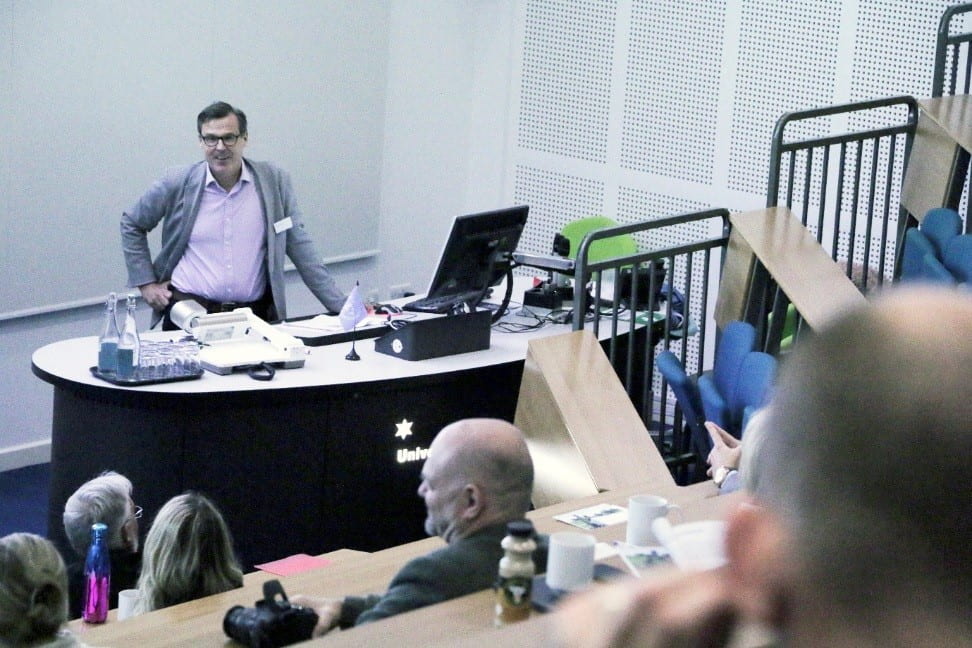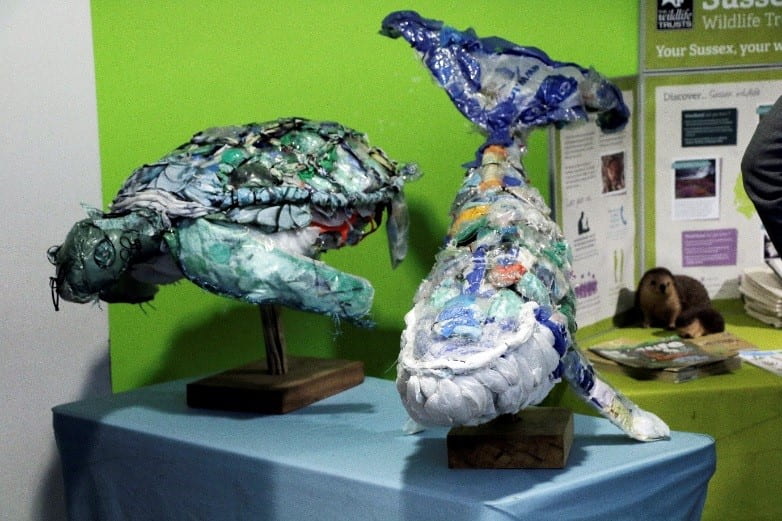Climate, Oceans and Coastal Communities Conference
This hugely successful conference was organised by the Centre for Aquatic Environments (University of Brighton), United Nations Association (London and South East), and the Sussex Wildlife Trust, attracting over 150 delegates to the University’s Moulsecoomb campus on the 10th of October. Among the attendees at the conference were academics, researchers, politicians, students, consultants, and representatives from numerous environmental agencies.
The conference was opened by Professor Chris Joyce, Director of the Centre for Aquatic Environments, before the Rt. Hon. Stephen Lloyd MP gave his personal account of why the marine environment is such a critical issue for his coastal constituency.
Professor Andrew Church was the first keynote speaker and made a compelling case for maintaining and restoring nature and its contribution to people, integrating land and ocean management to conserve biodiversity. He reported that one million species may be threatened with extinction and stressed that “challenges related to climate change, nature deterioration and achieving a good quality of life for all are interconnected”. 
Dr. Corina Ciocan then presented a short film telling the story of a University-funded Ignite project about microplastic pollution in Chichester Harbour, and highlighted the role of the wider community working in collaboration with scientists in tackling environmental problems. Dr. Ciocan said of the project: “Working in partnership with the local community meant that we had access to much more detailed historical data on water quality and environmental change”.
Next, Sir David Attenborough made an appearance! At least, he narrated the Sussex Wildlife Trust’s beautiful and fascinating film, introduced by Sarah Ward, on the kelp forests of Sussex. These have almost disappeared due to intensive fishing practices and other human impacts but there are plans afoot to hopefully restore them back to former glories.
The second keynote presentation was given by Dr Adriana Ford who emphasized the importance of the oceans for their environmental services and the so-called Blue Economy, which she stressed was not just about fisheries and shipping and tourism, but was also about resilience, carbon storage and other environmental benefits. She described some gloomy predictions for the future when considering climate change impacts but pointed out that the oceans also represented solutions to climate change, ending her talk on an optimistic note.
The conference concluded with a diverse panel discussion comprising the speakers and selected guests, including such topics as how children and young people interact with climate change, what land use change we can make to improve the oceans, and how local authorities can help enhance the environment, were explored with the audience.
In conclusion, a wide-ranging set of topics were discussed at this thought-provoking conference, including economic and social consequences of global warming, the state of ocean biodiversity and ecosystem services, rewilding marine habitats to mitigate climate change, and harvesting indigenous and local knowledge to strengthen the University-community partnership. The take home message, however, was that people must offer solutions and not just present the problems.
Photos Sam Roberts / Sussex Wildlife Trust.









